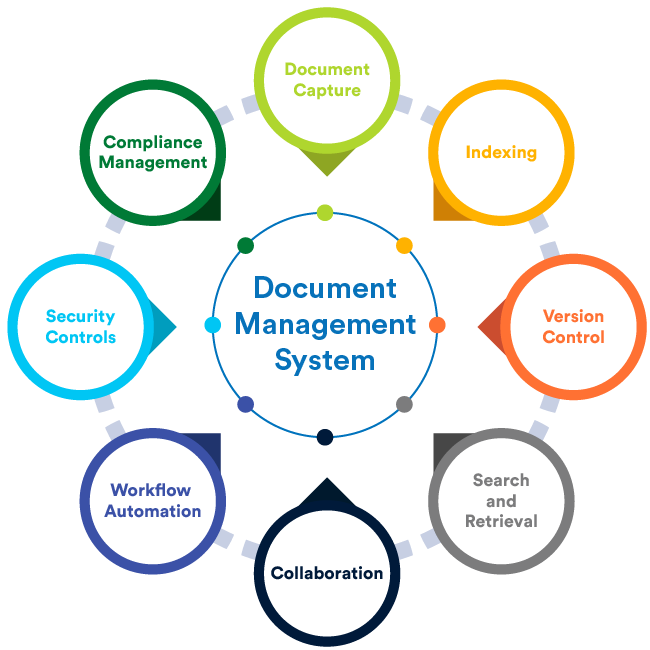Effective client communication is critical in the manufacturing sector, particularly in industries like aerospace, automotive, and high-tech. As companies scale and the complexity of their operations grows, managing documents becomes increasingly challenging. A robust document management system (DMS) is essential for streamlining communication, ensuring compliance, and maintaining quality across the supply chain.
The Importance of Effective Client Communication in Manufacturing
The Role of Document Management in Enhancing Communication
Document Management plays a crucial role in bridging communication gaps by providing a centralized platform for storing, sharing, and updating documents. This ensures that all stakeholders, including clients, have access to the latest information, reducing the risk of errors and miscommunication.
Challenges in Client Communication
In industries such as aerospace and defense, communication gaps can lead to significant operational inefficiencies. Miscommunication may result in production delays, non-compliance with regulations, or even lost business opportunities. The complexity of managing large volumes of documents across multiple departments and geographical locations further complicates communication efforts.
Understanding Document Management Tools
What is Document Management?
Document management refers to the process of storing, organizing, and tracking documents in a systematic manner. A robust document management system (DMS) facilitates the efficient management of documents throughout their lifecycle, from creation to archiving.
Key Features of DMS Software
DMS Software offers a wide range of features designed to improve document control and communication. These include version control, which ensures that all parties are working with the most current document, and access control, which restricts document access to authorized users only.
Enhancing Client Communication with Document Control Software
Real-Time Collaboration and Communication
Document control software enables real-time collaboration, allowing multiple users to work on the same document simultaneously. This feature is particularly valuable in client communication, where timely feedback and updates are essential. Utilizing document control software allows clients to review, provide feedback, and approve documents promptly, ensuring projects remain on schedule.
Ensuring Compliance and Traceability
In regulated industries like aerospace and defense, compliance with industry standards and regulations is non-negotiable. Document Control Software helps maintain compliance by providing a clear audit trail of all document activities. This traceability is crucial in demonstrating compliance to clients and regulatory bodies, fostering trust and transparency in communication.
The Advantages of Cloud-Based DMS for Client Communication
Accessibility and Flexibility
Cloud-based DMS solutions offer unparalleled accessibility, allowing users to access documents from any location, at any time. This is particularly beneficial for global manufacturing companies with clients spread across different time zones. Cloud-based DMS tools enable clients to access necessary documents without the need for physical meetings, streamlining communication and decision-making processes.
Security and Data Protection
Protecting data is a critical priority for manufacturing companies, particularly when handling sensitive client information. Cloud-based DMS solutions offer advanced security features, such as encryption and multi-factor authentication, to protect documents from unauthorized access. By using Cloud-based DMS tools, companies can assure clients that their data is secure, strengthening client relationships.
Best Practices for Implementing Document Management Tools
Assessing Your Document Management Needs
Before implementing a document management system, it’s essential to assess your company's specific needs. This includes evaluating the types of documents you manage, the frequency of document updates, and the level of collaboration required with clients. Understanding these needs will help you select the most suitable DMS software for improving client communication.
Training and Change Management
Successful implementation of document management tools requires proper training and change management. Employees and clients should be adequately trained on how to use the DMS software to ensure smooth adoption.
Integrating Document Management Tools with Existing Systems
Seamless Integration for Improved Workflow
To maximize the benefits of document management tools, it's crucial to ensure seamless integration with your existing systems. This includes ERP systems, quality management systems (QMS), and other business applications. Integration enables a smooth flow of information across different platforms, enhancing overall communication and efficiency.
Customization for Client-Specific Needs
Every client has unique requirements, and your document management system should be flexible enough to accommodate these needs. Customization options within DMS software allow you to tailor document workflows, access controls, and communication channels to suit specific client preferences, further improving client satisfaction.
Measuring the Impact of Document Management on Client Communication
Key Performance Indicators (KPIs) to Track
To assess the effectiveness of your document management tools in improving client communication, it's important to track key performance indicators (KPIs). These may include the time taken to respond to client queries, the number of document revisions required, and client feedback on communication processes. Regularly monitoring these KPIs will help you identify areas for improvement and demonstrate the value of your DMS software to clients.
Continuous Improvement and Feedback Loops
Effective client communication is a dynamic process that demands ongoing refinement. Implementing feedback loops allows you to collect valuable input from clients, enabling you to optimize document management strategies continually. This feedback can be used to refine your DMS software and processes, ensuring that client communication remains effective and aligned with their expectations.
Conclusion
As the manufacturing sector continues to evolve, staying ahead of the competition requires the adoption of advanced quality management systems like ComplianceQuest. ComplianceQuest offers a comprehensive suite of tools designed to enhance document management, ensure compliance, and improve client communication. By integrating ComplianceQuest with your existing systems, you can streamline document workflows, reduce the risk of errors, and provide clients with a superior communication experience.





Comments